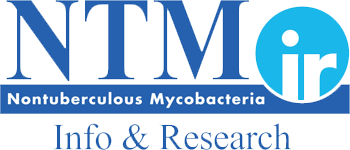Extrapulmonary nontuberculous mycobacterial (NTM) infections are an emerging health concern, particularly with the growing trend of medical tourism. While NTM primarily affects the lungs, it can also infect other parts of the body, posing significant health challenges.
Medical tourism has been on the rise in recent years. According to the State Department, as many as 320,000 U.S. citizens travel internationally for medical care each year. The Centers for Disease Control and Prevention estimates the number of medical tourists each year is likely in the millions.
What is Extrapulmonary NTM?
Nontuberculous mycobacteria are a diverse group of environmental organisms found in water and soil. Unlike the more well-known Mycobacterium tuberculosis, NTMs are not typically spread from person to person. Extrapulmonary NTM refers to infections outside the lungs, affecting skin, soft tissues, bones, and lymph nodes. These infections can be challenging to diagnose and treat due to their varied presentations and resistance to standard antibiotics.
Common Extrapulmonary NTM Infections
- Skin and Soft Tissue Infections: Often result from direct inoculation through trauma or surgical procedures. Symptoms include nodules, abscesses, and ulcers.
- Bone and Joint Infections: Typically occur following trauma or surgery. They present with pain, swelling, and decreased mobility.
- Lymphadenitis: Common in children, this infection causes swollen and tender lymph nodes, usually in the neck.
- Disseminated Disease: Occurs mainly in immunocompromised individuals, leading to widespread infection affecting multiple organs.
Rise of Medical Tourism
Medical tourism involves traveling to another state or country to receive medical care, driven by factors such as lower costs, shorter waiting times, and access to specialized treatments. Countries like Thailand, India, Mexico, and Turkey are popular destinations, offering a range of procedures from cosmetic surgery to complex medical treatments. More recently, people have traveled to other states within the US seeking popular cosmetic procedures, lured by promises of lower costs and shorter recovery periods.
Recent Cases of Extrapulmonary NTM Linked to Medical Tourism
According to a report published by the Centers for Disease Control and Prevention, an investigation of a case of NTM infection in a patient who received a cosmetic surgical procedure in Florida identified 15 similar cases in nine states, all in patients who received cosmetic surgical procedures at the same facility in Florida.
In another recent report, three Americans became infected by Mycobacterium abscessus after stem cell treatments abroad.
Mycobacterium abscessus is a species of rapidly growing nontuberculous mycobacteria (NTM) which can cause healthcare–associated infections and has been implicated in skin and soft tissue infections after cosmetic surgical procedures.
M.abscessus can lead to infections affecting the skin or lungs, which are challenging to treat even with antibiotics. These bacteria can thrive in open wounds or at injection sites. Such infections are often the result of improperly disinfected medical devices. According to the CDC, these infections can manifest as boils and pus-filled cysts.
During the last decade, Mycobacterium chimaera disseminated infections following cardiothoracic surgery, especially open-heart surgery, have been increasingly reported worldwide. The M. chimaera infections were acquired during cardiopulmonary bypass via aerosols emitted from contaminated heater-cooler unit water systems.⠀
While medical tourism offers attractive benefits, weighing these against the risks is essential, especially when dealing with complex infections like extrapulmonary NTM. Adequate preparation, thorough research, and a clear plan for follow-up care are vital to ensure a safe and successful medical journey. By staying informed and cautious, patients can better navigate the challenges of medical tourism and safeguard their health against the pitfalls of this growing trend.
Join our Support Group to learn more about how to manage Extrapulmonary NTM infections and your recovery. Please email ntmmail@ntminfo.org for more information and meeting zoom link.
